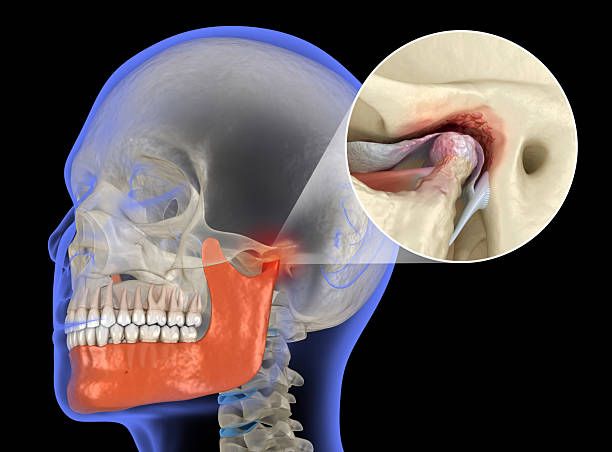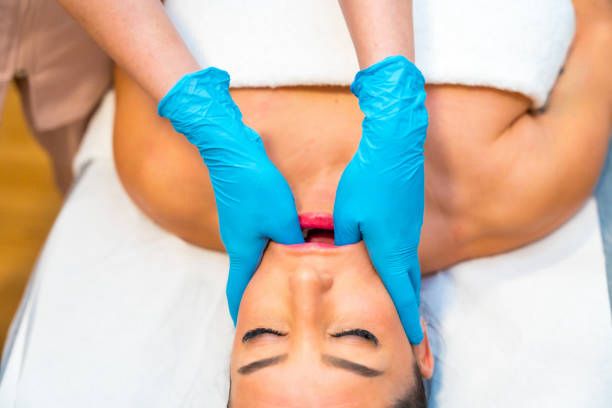TMJ (Jaw Pain) Physiotherapy
Specialized treatment for temporomandibular joint disorders and related jaw pain. Our targeted approach addresses the root causes of TMJ dysfunction to restore comfortable jaw movement, reduce pain, and improve your quality of life.


What is TMJ Physiotherapy?
TMJ (Temporomandibular Joint) Physiotherapy is a specialized approach focused on assessing and treating disorders of the jaw joint and surrounding structures. The temporomandibular joint connects your jawbone to your skull and acts as a sliding hinge, enabling essential functions like talking, chewing, and yawning. When this complex joint system becomes dysfunctional, it can cause a range of uncomfortable symptoms collectively known as TMJ disorders or TMD.
Our TMJ physiotherapy addresses not just the symptoms but the underlying causes of your jaw dysfunction. Through a comprehensive assessment, we evaluate the movement and function of your jaw joint, the condition of the surrounding muscles, and related structures including your neck, head posture, and even your breathing patterns. We recognize that TMJ problems rarely exist in isolation and often involve interconnected systems throughout the upper body.
Treatment typically combines skilled manual therapy techniques to improve joint mobility and release tight muscles, targeted exercise programs to restore proper movement patterns and strengthen supporting structures, and education about managing contributing factors like stress, posture, and daily habits. Our approach is gentle yet effective, focusing on progressive improvement and providing you with self-management strategies to maintain long-term relief from TMJ pain and dysfunction.
Benefits of TMJ Physiotherapy
Discover how specialized jaw treatment can improve your comfort and function
Relief from jaw pain and discomfort
Improved jaw mobility and function
Reduced clicking, popping, and locking
Decreased headaches and facial pain
Relief from ear symptoms (ringing, fullness)
Better sleep quality
Enhanced ability to eat and speak comfortably
Our Treatment Techniques
Specialized approaches we use for effective TMJ dysfunction management
Manual joint mobilization
Intraoral myofascial release
Trigger point therapy
Jaw coordination exercises
Postural correction techniques
Therapeutic ultrasound
Jaw relaxation training
Cranio-cervical treatment
Our Treatment Process
What to expect during your TMJ rehabilitation journey with us
Comprehensive Assessment
Detailed evaluation of your jaw function, related structures, and contributing factors.
Personalized Plan
Development of a customized treatment approach addressing your specific TMJ issues.
Manual Therapy
Skilled hands-on techniques to release tight tissues and improve joint mechanics.
Therapeutic Exercise
Progressive exercise program to restore proper function and prevent recurrence.
TMJ Issues We Address
Our TMJ physiotherapy effectively treats a wide range of jaw-related problems
Jaw Pain and Tenderness
Clicking or Popping Sounds
Limited Jaw Movement
Jaw Locking (Open or Closed)
TMJ-Related Headaches
Facial Pain and Tension
Ear Pain or Fullness
Bruxism-Related Problems
Post-Dental Work Discomfort
Frequently Asked Questions
Find answers to common questions about our TMJ physiotherapy services
What causes TMJ disorders?
TMJ disorders can have multiple causes, which is why individualized assessment is so important. Common contributing factors include jaw misalignment, teeth grinding or clenching (bruxism), stress and anxiety, arthritis, traumatic injury to the jaw, poor posture affecting the head and neck, and anatomical issues like disc displacement within the joint. For many people, TMJ problems result from a combination of these factors rather than a single cause. Certain habits like excessive gum chewing, nail biting, or prolonged jaw clenching during concentration can also contribute to TMJ dysfunction. During your assessment, we'll carefully evaluate potential causes specific to your situation to develop the most effective treatment approach.
What should I expect during TMJ physiotherapy treatment?
Your TMJ physiotherapy begins with a comprehensive assessment of your jaw function, head and neck posture, and related structures. Initial treatment typically involves gentle manual therapy techniques applied both externally on the face and muscles, and sometimes intraorally (inside the mouth) to release tight tissues and improve joint mobility. You'll learn specific exercises to improve jaw control, coordination, and strength. We may also incorporate techniques to address neck posture and function, as these areas are closely connected. Treatment is generally gentle and focused on progressive improvement rather than aggressive manipulation. We'll also provide education about self-management strategies, including modifications to daily habits, stress reduction techniques, and appropriate home exercises to support your recovery.
How many treatment sessions will I need?
The number of sessions varies based on your specific condition, its severity, and duration. Many patients with mild to moderate TMJ dysfunction show significant improvement within 4-6 sessions, while more complex or chronic cases may require 8-12 sessions or more. Most treatment plans begin with weekly sessions, gradually spacing out as you improve. You'll typically notice some relief after the first few sessions, with progressive improvement as treatment continues. We'll regularly reassess your progress and adjust your treatment plan accordingly. For some patients with chronic TMJ issues, periodic maintenance sessions may be beneficial after the initial treatment course to sustain improvements and prevent recurrence.
Will I need to continue exercises at home?
Yes, home exercises are a crucial component of effective TMJ treatment. We'll prescribe specific exercises tailored to your condition that typically take just a few minutes, several times daily. These may include gentle jaw stretching and strengthening exercises, coordination drills, posture correction, and relaxation techniques. Consistent practice of these exercises significantly enhances treatment outcomes and helps prevent recurrence. We'll ensure you understand exactly how to perform each exercise correctly and provide clear guidance on frequency and progression. We may also recommend lifestyle modifications, such as temporary diet adjustments, stress management strategies, and sleep position changes to support your recovery.
Can TMJ physiotherapy help if I already wear a splint or nightguard?
Yes, physiotherapy works very well in conjunction with dental appliances like splints or nightguards. While these devices provide valuable protection and support, they don't directly address muscle tension, movement patterns, or postural issues that may be contributing to your TMJ problem. Physiotherapy complements dental approaches by targeting these additional factors. Many patients find that combining both treatments leads to better outcomes than either approach alone. We'll work collaboratively with your dentist to ensure a coordinated treatment approach. For some patients, successful physiotherapy may eventually reduce reliance on splints, though this varies depending on your specific condition and should be decided in consultation with both your physiotherapist and dentist.